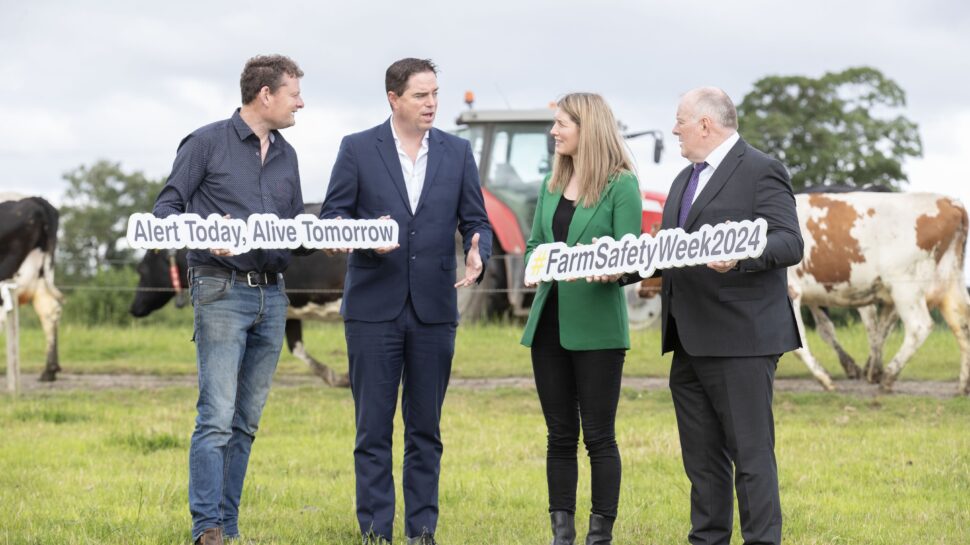Learn from Farm Accident ‘Near Misses’

IFA Farm Family & Social Affairs Chair Teresa Roche encourages farmers to be mindful of near misses on their farms.
Day two of Farm Safety Week is to promote awareness around near misses occurring on farms and to encourage farmers to learn from their near misses.
Farms are very dynamic places with, persons, machinery, loads, and livestock moving throughout the farm.
Most accidents occur when a source of energy and the person makes contact at the same place and time. A ‘near miss’ is when the source of energy is present but due to timing or place, contact with the person is missed.
Dr John McNamara, Teagasc Health and Safety Specialist Advisor said that data from analysis of accidents indicates that for every accident there can be about 10 near misses. This knowledge provides everyone seeking to improve safety with the opportunity to learn from a near miss.
“Think of all the factors that led up to the ‘near miss’ and consider what actions are needed to prevent a recurrence,” he said.
Both European and Irish safety, health and welfare at work law is based on the ‘Principles of Prevention’. These principles propose that the best way to eliminate accidents is to, firstly, make the workplace physically safer, for example, cover slurry tanks or PTO shafts.
Then follow-up with behavioural controls, for example, avoid hurry, tiredness due to long working hours and trying to do several jobs at once, causing loss of concentration.
Teresa Roche said as a farmer you should keep a list of near misses. Review after each occurrence and on a regular basis to consider how you can improve safety on your farm.
Farmers should also review and update your Risk Assessment Document on a regular basis as this document gives a comprehensive guidance on farm health and safety based on accident causes on Irish farms.
There is a legal requirement to report a workplace accident where person is out of work for ‘4 or more consecutive work days’ excluding the day of the accident or where a non-worker is injured.
The legal requirements to report accidents and dangerous occurrences and information on these can be found on the HSA website at: https://www.hsa.ie/eng/topics/accident_and_dangerous_occurrence_reporting/




